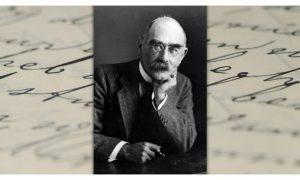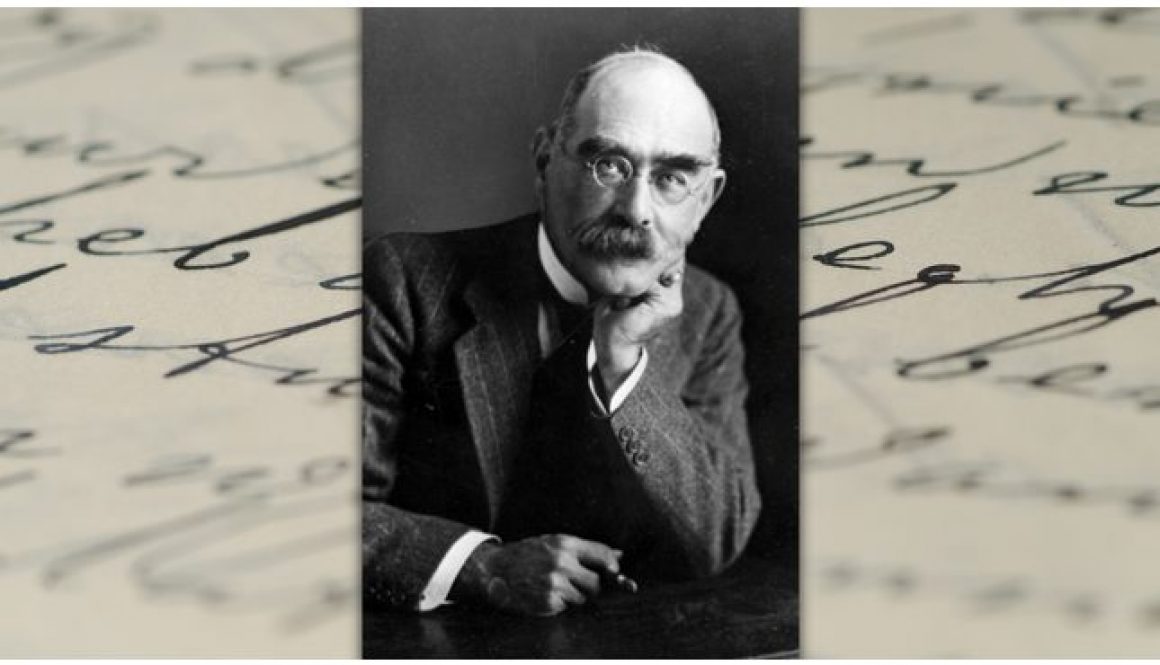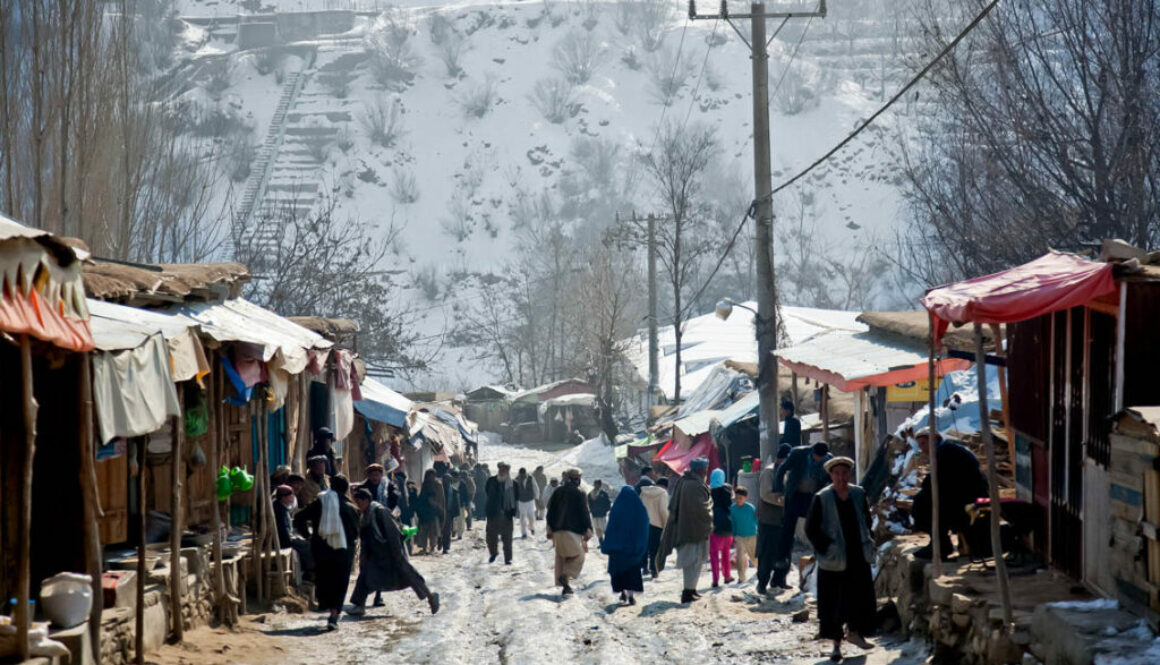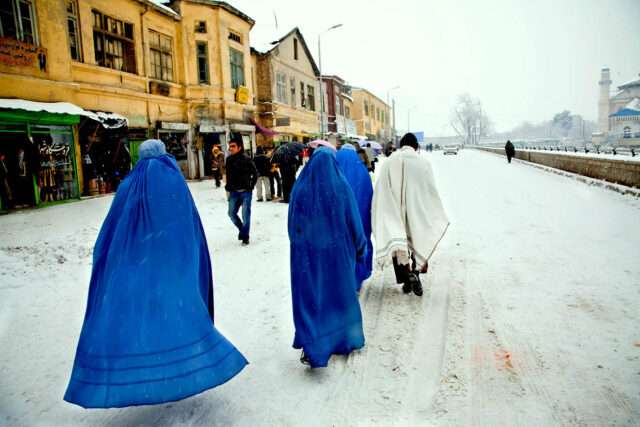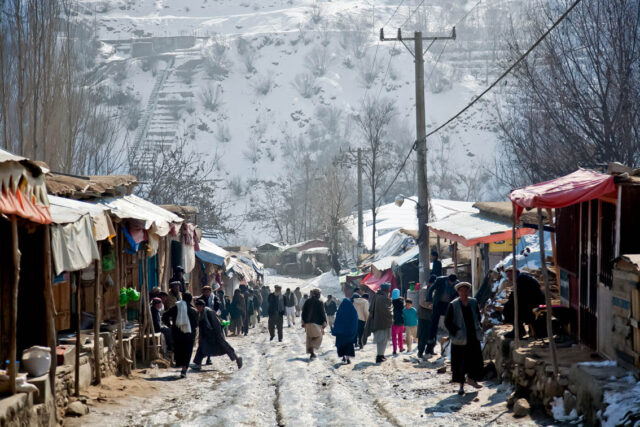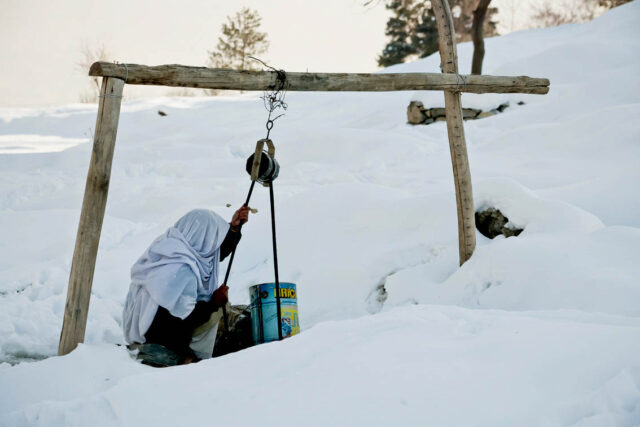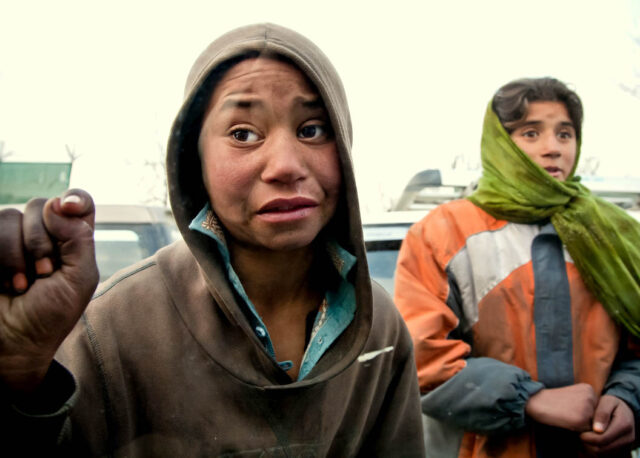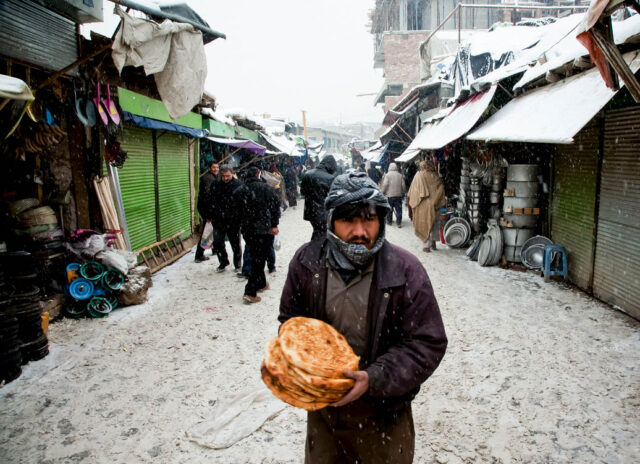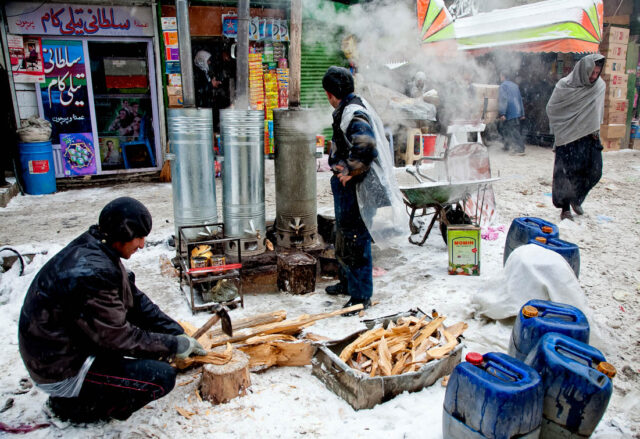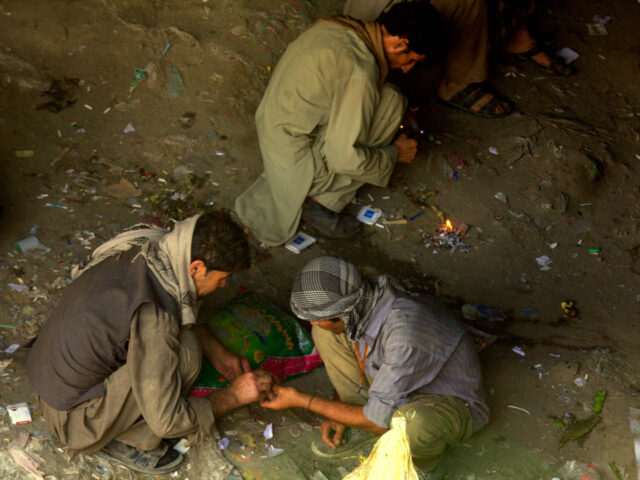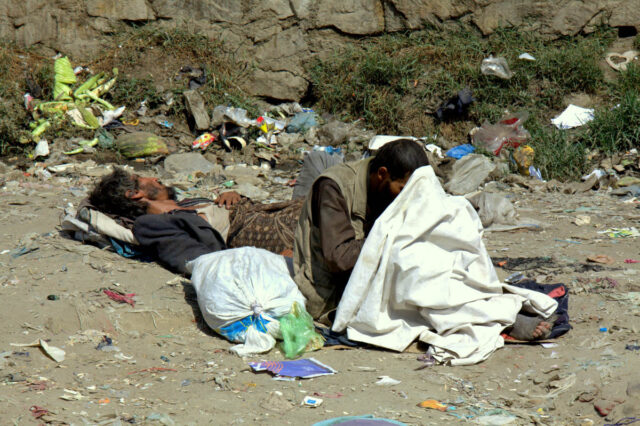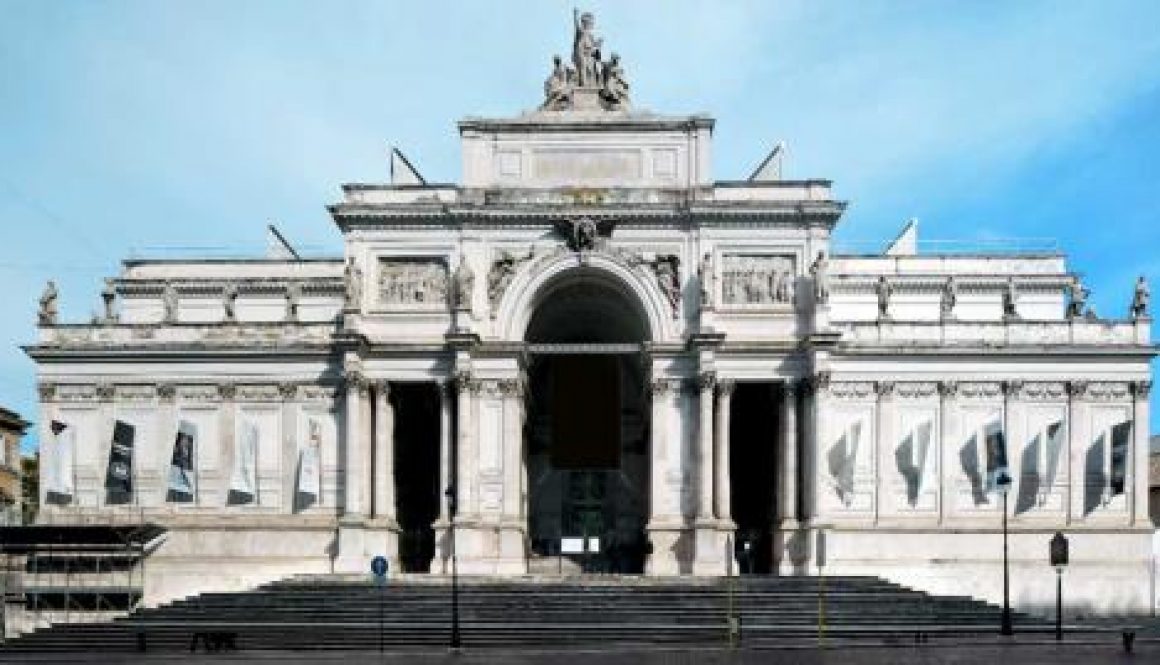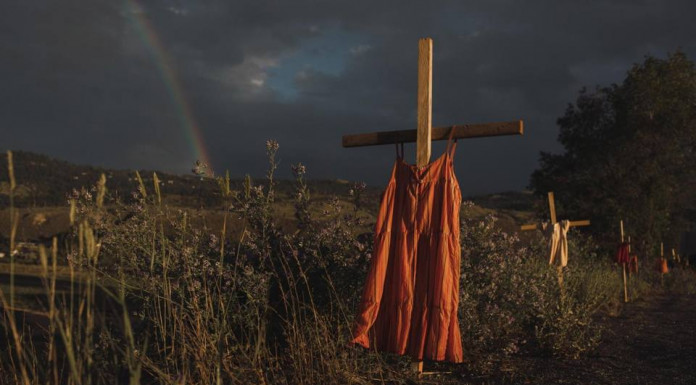Rudyard Kipling- Poesie-Biblioteca DEA SABINA
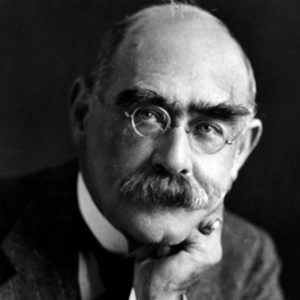
Biblioteca DEA SABINA
poesie di Rudyard Kipling
Rudyard Kipling, Bombay, 30 dicembre 1865 – Londra, 18 gennaio 1936
GETSEMANI
1914/18
L’Orto chiamato Getsemani
era, sì, in Piccardia,
e lì veniva la gente a vedere
i soldati inglesi passare.
Di là passavamo – di là passavamo
e sostavamo, secondo il caso,
e portavamo con noi le maschere antigas,
un po’ oltre il Getsemani.
L’Orto chiamato Getsemani
conteneva in sé una bella ragazza,
ma per tutto il tempo che mi parlava
io pregavo che il calice da me fosse allontanato.
L’ufficiale sedeva sulla sua sedia,
gli uomini erano distesi sull’erba,
e per tutto il tempo che là sostammo
io pregai che il calice da me fosse allontanato.
Ma non lo fu – non lo fu –
non fu da me allontanato.
Lo bevvi quando incontrammo il gas,
un po’ oltre il Getsemani!
RECESSIONAL
Dio dei nostri padri, conosciuto in antico,
Signore delle nostre lunghe linee di battaglia,
sotto la cui terribile mano reggiamo
un dominio su palmeti e pinete –
Dio, Signore degli eserciti, resta con noi,
perché non dimentichiamo – non dimentichiamo!
Tumulti e grida muoiono,
capitani e sovrani trapassano,
ma il tuo antichissimo sacrificio resta,
un cuore umile e contrito,
Dio, Signore degli eserciti, resta con noi,
perché non dimentichiamo – non dimentichiamo!
In lontani mari dileguarono le nostre flotte,
su dune e promontori si spengono i fuochi:
ecco, tutta la nostra pompa di ieri
si fa tutt’uno con Ninive e con Tiro!
Giudice delle nazioni, risparmiaci,
perché non dimentichiamo – non dimentichiamo!
Se resi ebbri dalla potenza liberiamo
lingue che non ti venerano,
vantandocene come usano i Gentili,
o stirpi minori che non conoscono la Legge,
Dio, Signore degli eserciti, ugualmente resta con noi,
perché non dimentichiamo – non dimentichiamo!
Per i cuori pagani che solo si fidano
di canne fumanti e schegge di ferro,
valorosa polvere che edifica sulla polvere,
e che vigilando non t’invocano a vigilare,
per le loro concitate vanterie e le stolte parole –
pietà della tua gente, Signore!
L’APPELLO
Se qualche diletto vi ho pur dato
per qualcosa che io abbia operato,
possa ora giacere sereno in quella notte
che sarà anche vostra quando che sia:
e per quel poco, poco spazio
che i morti rioccupano nelle menti,
vorrei che altro non cercaste
che i libri che mi lasciai dietro.
Rudyard Kipling (traduzione di Tommaso Pisanti)
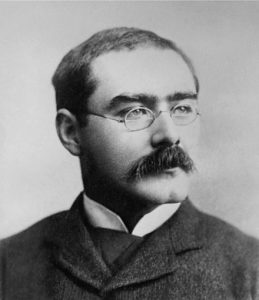
Breve biografia di Rudyard Kipling nasce a Bombay nel 1865. La sua vita si svolge tra l’India, l’America e l’Inghilterra. E’ il poeta dell’imperialismo britannico dell’età vittoriana. Nei suoi versi di sapore whitmaniano emerge la sua azione politica e sociale ma anche l’immaginario della mitologia e del folklore inglese. La morte del figlio e lo scoppio della prima guerra mondiale segneranno la sua vita e la scrittura avrà una serie di tensioni inconsce che cambieranno il suo stile fantastico. Ricordiamo i suoi racconti indiani Soldiers Three (1888); In black and White; The Day’s Work e Many Inventions. Nel 1892 pubblica The Light That Failed e nel 1894 The Jungle Book. Come poeta pubblica nel 1896 The Seven Seas e nel 1903 Five Nations. Vince il Premio Nobel nel 1907. Tra le opere famose di Kiplin ricordiamo anche i romanzi definiti “per ragazzi”: Captains Courageus e Stalki and Co. Muore nel 1936 a Londra.
GETHSEMANE
1914/18
The Garden called Gethsemane
In Picardy it was,
And there the people came to see
The English soldiers pass.
We used to pass – we used to pass
Or halt, as it might be,
And ship our masks in case of gas
Beyond Gethsemane.
The Garden called Gethsemane,
It held a pretty lass,
But all the time she talked to me
I prayed my cup might pass.
The officer sat on the chair,
The men lay on the grass,
And all the time we halted there
I prayed my cup might pass.
It didn’t pass – it didn’t pass –
It didn’t pass from me.
I drank it when we met the gas
Beyond Gethsemane!
RECESSIONAL
God of our fathers, known of old,
Lord of our far-flung battle line,
Beneath whose awful hand we hold
Dominion over palm and pine –
Lord God of Hosts, be with us yet,
Lest we forget—lest we forget!
The tumult and the shouting dies:
The Captains and the Kings depart:
Still stands Thine ancient sacrifice,
An humble and a contrite heart.
Lord God of Hosts, be with us yet,
Lest we forget—lest we forget!
Far-called our navies melt away;
On dune and headland sinks the fire:
Lo, all our pomp of yesterday
Is one with Nineveh and Tyre!
Judge of the Nations, spare us yet,
Lest we forget—lest we forget!
If, drunk with sight of power, we loose
Wild tongues that have not Thee in awe,
Such boastings as the Gentiles use,
Or lesser breeds without the Law –
Lord God of Hosts, be with us yet,
Lest we forget—lest we forget!
For heathen heart that puts her trust
In reeking tube and iron shard,
All valiant dust that builds on dust,
And guarding calls not Thee to guard,
For frantic boast and foolish word,
Thy Mercy on Thy People, Lord!
THE APPEAL
If I have given you delight
By aught that I have done,
Let me lie quiet in that night
Which shall be yours anon:
And for the little, little, span
The dead are born in mind,
Seek not to question other than
The books I leave behind.
